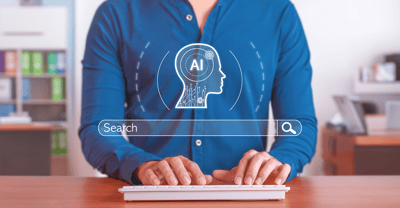As researchers, we've all hit that familiar wall: "Access Denied." You're deep into a literature review when your momentum grinds to a halt. The article you need isn't available through your institution's subscriptions, leaving you with the interlibrary loan (ILL) process—submit a request, wait days or weeks, hope the article is worth the delay, and repeat for the next inaccessible paper.
This scenario plays out thousands of times daily across academic institutions worldwide, creating friction that significantly impacts the pace of scientific discovery.
But what if there was a better way?
Breaking Down Research Access Barriers In Academic Libraries
The scholarly communication landscape presents a paradox: we have more content available than ever—millions of articles across tens of thousands of journals—yet researchers often struggle to access specific content when they need it. Libraries face impossible choices with constrained budgets, unable to subscribe to everything while struggling to predict which articles their researchers will actually need.
Traditional ILL systems, while valuable, weren’t designed for the demands of modern research workflows. When racing to meet grant deadlines or building on recent findings, waiting days for an article can mean the difference between a breakthrough and a missed opportunity.
LibKey Meets Article Galaxy Scholar
The recent integration between Research Solutions' Article Galaxy Scholar (AGS) and Third Iron's LibKey platform represents a fundamental shift in research access. This partnership embeds seamless access options directly into discovery workflows, replacing dead ends with clear pathways to content.
LibKey combines article-level intelligence with expert AI to create intelligent source selection in literally a tenth of a second. The system feeds article records through comprehensive intelligence—metadata, open access availability, editorial status—then merges this with detailed knowledge about library holdings, entitlements, and authentication methods.

The result is LibKey's intelligent "waterfall" linking structure that systematically checks sources: open access version of record, subscribed journals, aggregator content, then unmediated document delivery through AGS before traditional ILL fallback. AGS now provides access to over 34,000 journals with a 98% instant delivery rate—ensuring researchers get what they need, when they need it.
Transforming Academic Research Workflows & Collection Development
This integration reflects a broader evolution toward what might be called the new patron-driven acquisition model—similar to what happened with eBooks, now thoughtfully extended to scholarly articles through unmediated document delivery.
The shift addresses traditional problems that historically made "just in time" strategies seem impractical:
- Speed: AGS delivers 98% of requests instantly, making the experience nearly indistinguishable from accessing content already available through the library.
- Cost Control: Instead of maintaining access to every journal title, libraries can strategically support research needs through usage-based delivery—defining access rules, setting journal or date limits, applying user-based permissions, and enforcing budget caps.
- Workflow Simplicity: The "Request PDF" option is embedded within trusted discovery interfaces, such as PubMed, Scopus, and library search tools, requiring no additional training or platform switching.
- Institutional Flexibility: Some libraries allow direct AGS access for faculty while routing undergraduates through traditional ILL. The system automatically applies the correct policies based on user role.
Impact On Research Infrastructure & Scientific Discovery
When access friction decreases, positive effects ripple through the research community:
- Enhanced Research Quality: Comprehensive literature access allows researchers to build on broader foundations and avoid redundant efforts.
- Accelerated Discovery: Reducing time between identifying and accessing research enables quicker testing of ideas, iteration, and collaboration across disciplines.
- Improved Interdisciplinary Research: Easy access to literature from adjacent fields supports innovative, cross-cutting research.
- Strategic Collection Intelligence: Combined AGS and LibKey usage data provides insight into real demand—complementing COUNTER metrics and informing smarter collection decisions.
- Reduced Access Inequity: Institutions with limited budgets can now offer research access experiences previously reserved for larger, better-funded libraries.
The Future Of Research Access Technology
The LibKey–AGS integration represents the next phase of document delivery—one where content access is embedded within existing research workflows and discovery tools. The user experience is simple, fast, and nearly invisible. Researchers don’t need to learn new systems or navigate extra layers—access just works.
We're moving toward a more flexible, data-informed model of research infrastructure, where “owned” versus “accessible” becomes less important than whether users can reach the full text at the moment they need it.
As libraries and researchers evolve, the tools they choose will shape not just access, but research outcomes. This integration helps sustain momentum across disciplines and user groups—even when resources are limited.
Because the question isn’t whether access challenges will occur—it’s whether libraries have the tools to address them. With AGS and LibKey working behind the scenes, more and more institutions can confidently answer: Yes, we do.



